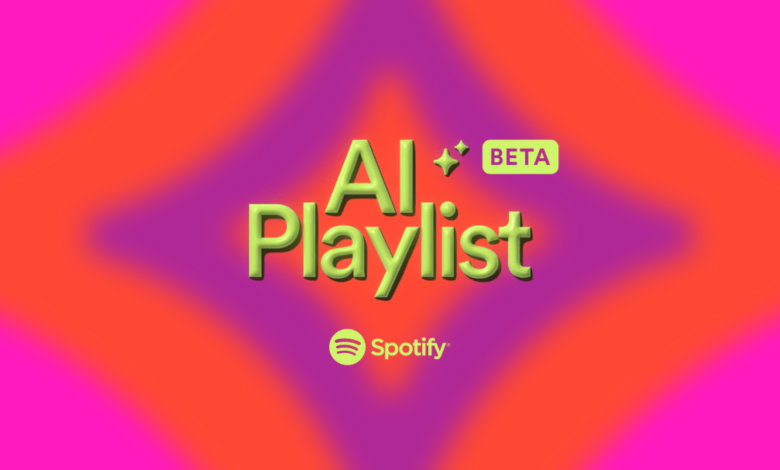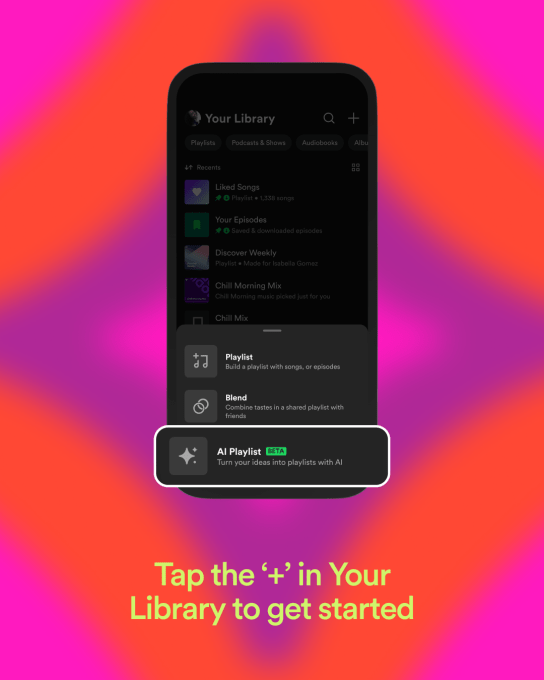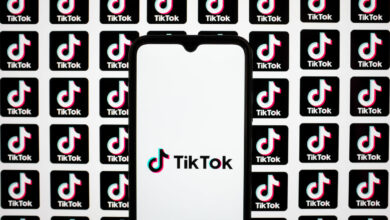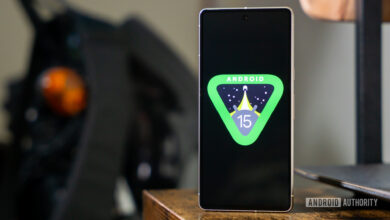Spotify launches personalized AI playlists that you can build using prompts

Spotify already found success with its popular AI DJ feature, and now the streaming music service is bringing AI to playlist creation. The company on Monday introduced AI playlists into beta, a new option that allows users to generate a playlist based on written prompts.
The feature will initially become available to users on Android and iOS devices in the U.K. and Australia and will be iterated on in the months ahead.
In addition to more standard playlist creation requests, like those based on genre or time frame, Spotify’s use of AI means people could ask for a wider variety of custom playlists, like “songs to serenade my cat” or “beats to battle a zombie apocalypse,” Spotify suggests. Prompts can reference all sorts of things, like places, animals, activities, movie characters, colors or emojis. The company notes that the best playlists are generated using prompts that contain a combination of genres, moods, artists and decades, however.
Spotify also leverages its understanding of users’ tastes to customize the playlists it makes with the feature.
After the playlist is generated, users can then use the AI to revise and refine the end result by issuing commands like “less upbeat” or “more pop,” for example. Users can also swipe left on any songs to remove them from the playlist.
In terms of the technology, Spotify says it’s using large language models (LLMs) to understand the user’s intent. Then, Spotify uses its personalization technology — the information it has about the listener’s history and preferences — to fulfill the prompt and create a personalized AI-generated playlist for the user.
The company uses a range of third-party tools for its AI and machine learning experiences.
TechCrunch first reported in October 2023 that Spotify was developing AI playlists, when reverse engineers Chris Messina and Alessandro Paluzzi shared screenshots of code from Spotify’s app that referred to AI playlists that were “based on your prompts.”
Spotify at the time declined to comment on the finding, saying it would not offer a statement on possible new features. However, in December 2023, the company confirmed that it was testing AI-driven playlist creation after a TikTok video of the feature surfaced showing what the Spotify user described as “Spotify’s ChatGPT.”

The feature is found in the “Your Library” tab in Spotify’s app by tapping on the plus button (+) at the top right of the screen. A pop-up menu appears showing the AI Playlist as a new option alongside the existing “Playlist” and “Blend” options.
If a listener can’t think of any prompts to try, Spotify offers prompt suggestions to help people get started, like “get focused at work with instrumental electronica,” “fill in the silence with background café music,” “get pumped up with fun, upbeat, and positive songs” or “explore a niche genre like Witch House” and many others.
To save an AI playlist, tap the “Create” button to add it to the library.
The company notes the AI has guardrails around it so it will not respond to offensive prompts or those focused on current events or specific brands.
Spotify has been investing in AI technology to improve its streaming service for many months. With the launch of AI DJ, which expanded globally last year, the company used a combination of Sonantic and OpenAI technology to create an artificial version of the voice of Spotify’s head of cultural partnerships, Xavier “X” Jernigan, who introduces personalized song selections to the user. Last year, Spotify said it was investing in in-house research to better understand the latest in AI and large language models.
CEO Daniel Ek has also teased to investors other ways Spotify could leverage AI, including by summarizing podcasts, creating AI-generated audio ads, and more. The company has also looked into using AI tech that would clone a podcast host’s voice for host-read ads.
Ahead of AI playlists, Spotify launched a similar feature, Niche Mixes, that allowed users to create personalized playlists using prompts, but the product did not leverage AI technology and was more limited in terms of its language understanding.


